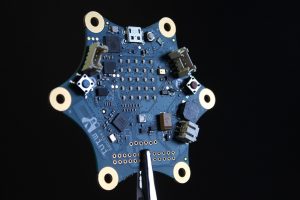Quantum Logic Systems: Wave-Based Processing
Welcome to the future of computing – Quantum Logic Systems. While traditional computers rely on ones and zeros, quantum computers harness the power of quantum bits, or qubits, to process information. But that’s not all, quantum logic systems also use wave-based processing to manipulate and utilize this quantum information. In this article, we’ll take a deep dive into the fascinating world of quantum computing, specifically looking at wave-based processing and its potential to revolutionize the way we solve complex problems. So, buckle up and get ready to explore the cutting-edge technology of quantum logic systems.
The Basics of Quantum Computing
Before we delve into the specifics of wave-based processing, it’s essential to understand the basics of quantum computing. In traditional computers, bits can only hold values of 0 or 1, while in quantum systems, qubits can hold both values simultaneously through a phenomenon known as superposition. This unique characteristic of qubits allows quantum computers to process vast amounts of data at lightning-fast speeds, making them excellent at solving complex problems that would take traditional computers years, if not centuries, to solve.
One of the most famous applications of quantum computing is in cryptography. Traditional computers use complex algorithms to generate encryption keys, which can be broken with enough computing power. Quantum computers, on the other hand, can solve these algorithms in a fraction of the time, making them virtually unhackable. This makes quantum computing a game-changer for industries that deal with sensitive information, such as banking, defense, and healthcare.
Introducing Wave-Based Processing
Now that we have a basic understanding of quantum computing, let’s dive into wave-based processing and how it takes quantum computing to the next level. Typically, quantum computers use a combination of superposition and quantum entanglement to process and store information. However, quantum logic systems take it one step further by using waves to transfer and manipulate information. You can think of it as surfing on a quantum wave.
Wave-based processing relies on a phenomenon known as quantum tunneling, where quantum particles can pass through barriers that would be impossible for traditional particles to cross. In quantum logic systems, waves are used to control and manipulate qubits, allowing for even more computing power and speed.
The Advantages of Wave-Based Processing
So, what makes wave-based processing such a game-changer in the world of quantum computing? While traditional computers use physical components, such as transistors, to perform calculations, quantum logic systems utilize wave-based processing to manipulate information at the quantum level. This leads to several advantages, including increased processing speed, improved accuracy, and reduced power consumption.
Additionally, wave-based processing allows for the creation of larger and more powerful quantum computers. Traditional components have size limitations, but with wave-based processing, there is no such constraint. This means that quantum computers can continue to grow and become even more powerful, allowing for the solving of increasingly complex problems.
The Future of Quantum Logic Systems
The potential of wave-based processing is limitless. With the increasing demand for faster and more powerful computing, quantum logic systems are poised to revolutionize various industries, from finance and medicine to artificial intelligence and space exploration. Researchers are constantly pushing the boundaries of what is possible with quantum computing, and wave-based processing is at the forefront of these advancements.
However, we’re still at the early stages of quantum computing, and there are many challenges to overcome before we see widespread adoption of quantum logic systems. These include improving qubit stability, reducing errors, and developing efficient methods of quantum error correction.
In Conclusion
Quantum logic systems with wave-based processing have the potential to transform computing as we know it. With their incredible processing power, speed, and accuracy, they can tackle complex problems that are currently out of reach for traditional computers. As the technology continues to evolve, we can expect to see quantum computing becoming an integral part of our daily lives, facilitating breakthroughs in various industries and shaping the future of technology. So, keep an eye out for quantum logic systems and the wonders they have in store for us.










